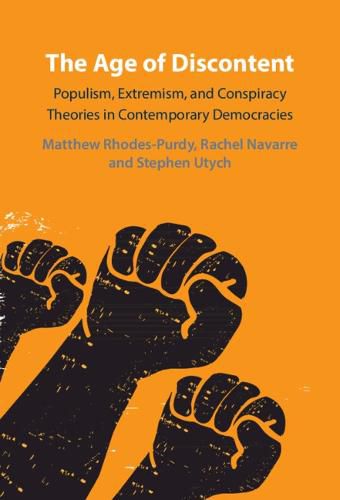Readings Newsletter
Become a Readings Member to make your shopping experience even easier.
Sign in or sign up for free!
You’re not far away from qualifying for FREE standard shipping within Australia
You’ve qualified for FREE standard shipping within Australia
The cart is loading…






The years following the 2008 financial crisis produced a surge of political discontent with populism, conspiracism, and Far Right extremism rising across the world. Despite this timing, many of these movements coalesced around cultural issues rather than economic grievances. But if culture, and not economics, is the primary driver of political discontent, why did these developments emerge after a financial collapse, a pattern that repeats throughout the history of the democratic world? Using the framework of 'Affective Political Economy', The Age of Discontent demonstrates that emotions borne of economic crises produce cultural discontent, thus enflaming conflicts over values and identities. The book uses this framework to explain the rise of populism and the radical right in the US, UK, Spain, and Brazil, and the social uprising in Chile. It argues that states must fulfill their roles as providers of social insurance and channels for citizen voices if they wish to turn back the tide of political discontent.
$9.00 standard shipping within Australia
FREE standard shipping within Australia for orders over $100.00
Express & International shipping calculated at checkout
The years following the 2008 financial crisis produced a surge of political discontent with populism, conspiracism, and Far Right extremism rising across the world. Despite this timing, many of these movements coalesced around cultural issues rather than economic grievances. But if culture, and not economics, is the primary driver of political discontent, why did these developments emerge after a financial collapse, a pattern that repeats throughout the history of the democratic world? Using the framework of 'Affective Political Economy', The Age of Discontent demonstrates that emotions borne of economic crises produce cultural discontent, thus enflaming conflicts over values and identities. The book uses this framework to explain the rise of populism and the radical right in the US, UK, Spain, and Brazil, and the social uprising in Chile. It argues that states must fulfill their roles as providers of social insurance and channels for citizen voices if they wish to turn back the tide of political discontent.